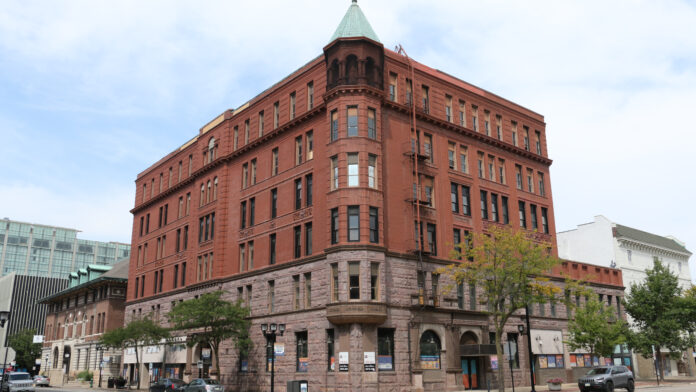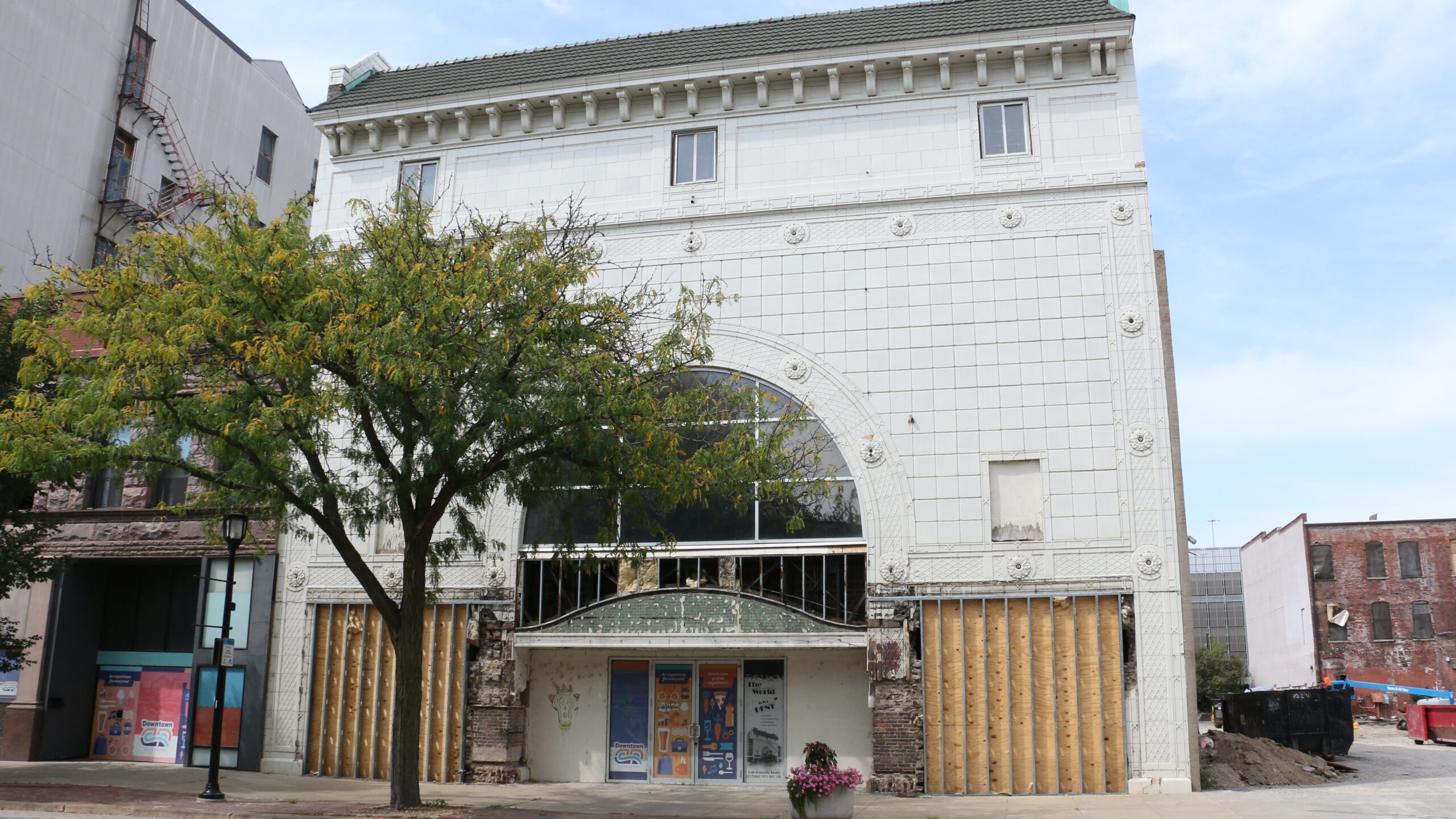
The redevelopment of the historic former Guaranty Bank and Strand Theatre buildings in a prominent section of downtown Cedar Rapids is moving forward.
The Cedar Rapids City Council voted unanimously Sept. 10 to approve a term sheet for the $30 million project, which will transform the Guaranty Bank building at 222 Third St. SE into a multi-use development and the Strand Theatre building at 314 Third Ave. SE into a commercial fitness center.
Local developer Steve Emerson purchased both buildings, as well as the former Dragon restaurant building at 329 Second Ave. SE, in June 2023 for a total of $2.8 million.
Guaranty Bank closed its operations in the building in 2017 after the bank was acquired by Cedar Rapids Bank & Trust earlier that year in a $44.2 million deal. The building was originally constructed in 1895.
Mr. Emerson plans to redevelop the properties through his development firm, Aspect Investments. Previous plans for the property, which called for a boutique hotel with as many as 200 rooms and a pair of restaurants, failed to materialize after the COVID-19 pandemic.
As currently comprised, Mr. Emerson’s plan for the Guaranty Bank building includes commercial space on the first floor and 70 market-rate apartments on the third through sixth floors. It will also involve exterior masonry renovations and custom windows to match the building’s larger historic windows.

The Strand Theatre building, designed in the style of an Italian palazzo, was built with 1,300 seats for stage, vaudeville, and motion picture productions. It opened in October 1915 for a theater troupe called the Strand Players, as well as a variety of traveling productions. It became the State Theater in 1929, then the New World Playhouse in 1960, before going out of business in 1981.
The building will be repurposed as a fitness center, including “significant” exterior masonry restoration and new storefront windows.
The project has already been approved for state workforce housing tax credits, with a local match from the city. Aspect Investments is also pursuing state historic tax credits and an above-standard incentive, which require a financial gap analysis to ensure that the developer’s equity exceeds the present value of city incentives.
Both projects will retain the historical features and architecture of the buildings, as required by the State Historical Preservation Office, economic development coordinator Scott Mather told the council.
Council member Ashley Vanorny said that the project is significant for Brent and Jasmin Stepanek, who first proposed the fitness center as a dedication to Mr. Stepanek’s parents, who “remember the Strand Theatre in its heyday.”
“Although it’s going to be something different than we first imagined, I love the fact that this new concept of having a gym in there is really very much intended to maintain the historical characteristics that made it so significant,” Ms. Vanorny said. “I just really appreciate the fact that they’re not totally obliterating that, and not only are they saving some pieces, but they are really leaning into that (history), because it’s important to (the Stepanek family) too.”
The project will return to the council in November or December to amend the central consolidated urban renewal area, as well as to review a formal development agreement.




